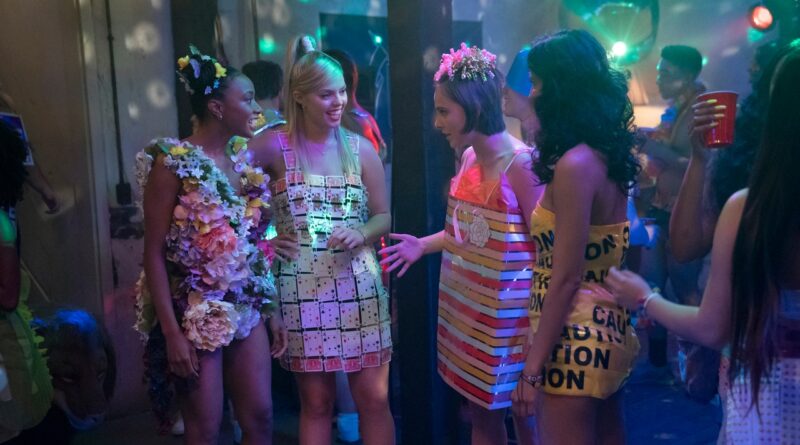“Sex Lives of College Girls” Is Great, But Why Is It Obsessed With Greek Life?
In this op-ed, writer Olivia Evans discusses HBO Max’s Sex Lives of College Girls and its intense focus on fraternities and sororities.
A recent episode of Sex Lives of College Girls titled “Frat Problems” opens with a stereotypical nightmare scenario for college-aged people: Bela, Kimberly, Whitney, and Leighton throw a party and nobody comes. They’ve been banned from the frats after Kimberly turns in Theta for cheating to keep her spot at Essex, but they’re trying to take their exile in stride. Bela makes a funny but honest point about the reality for many women seeking to have fun in college: “Now we don’t have to wait in some long lines freezing our asses off hoping some power-hungry douchebags will let us in.”
In a complete turn of events, however, the failure of the party makes the girls decide their social lives cannot exist without the fraternity parties; the episode ends with the group organizing a fundraiser to keep Theta’s “good” status on campus. The girls raise $11,000 for climate change, and in return get to attend frat parties again (and receive lap dances). While the episode is still filled with the lightheartedness that makes SLOCG so lovable, the series takes a questionable stance toward the problems that most college students face during their freshman year concerning Greek life: if you can’t beat ‘em, join ‘em.
Content
This content can also be viewed on the site it originates from.
A show set at a college campus is going to bring up Greek life at some point, of course, but SLOCG was so quick to integrate their protagonists into its culture. Unlike the show’s self-awareness when it comes to other social, financial, and structural problems facing its characters, its depiction of frat culture is that it’s a necessary evil for college freshmen to partake in. (And that every cool, interesting, hot person is somehow lining up for these parties, when that’s just not the case in real life.)
That’s not to say the portrayals are all positive, or that they don’t draw attention to the exploitation in Greek life. At the end of the show’s very first episode, the girls go to their first frat party together and proceed to wait several minutes in the cold before Leighton’s brother Nico, a member of the frat whose party the girls are attending, allows them to cut in line; in season 2, the girls similarly are able to cut in a long line because Bela shows off her “toddler top” for the bouncer. While both instances are mostly inoffensive and the latter is a pretty funny moment, this speaks volumes for the way Greek life prizes exclusivity from the very first moment students get to campus. Access to Greek life, and specific sororities and fraternities, is a status symbol.




